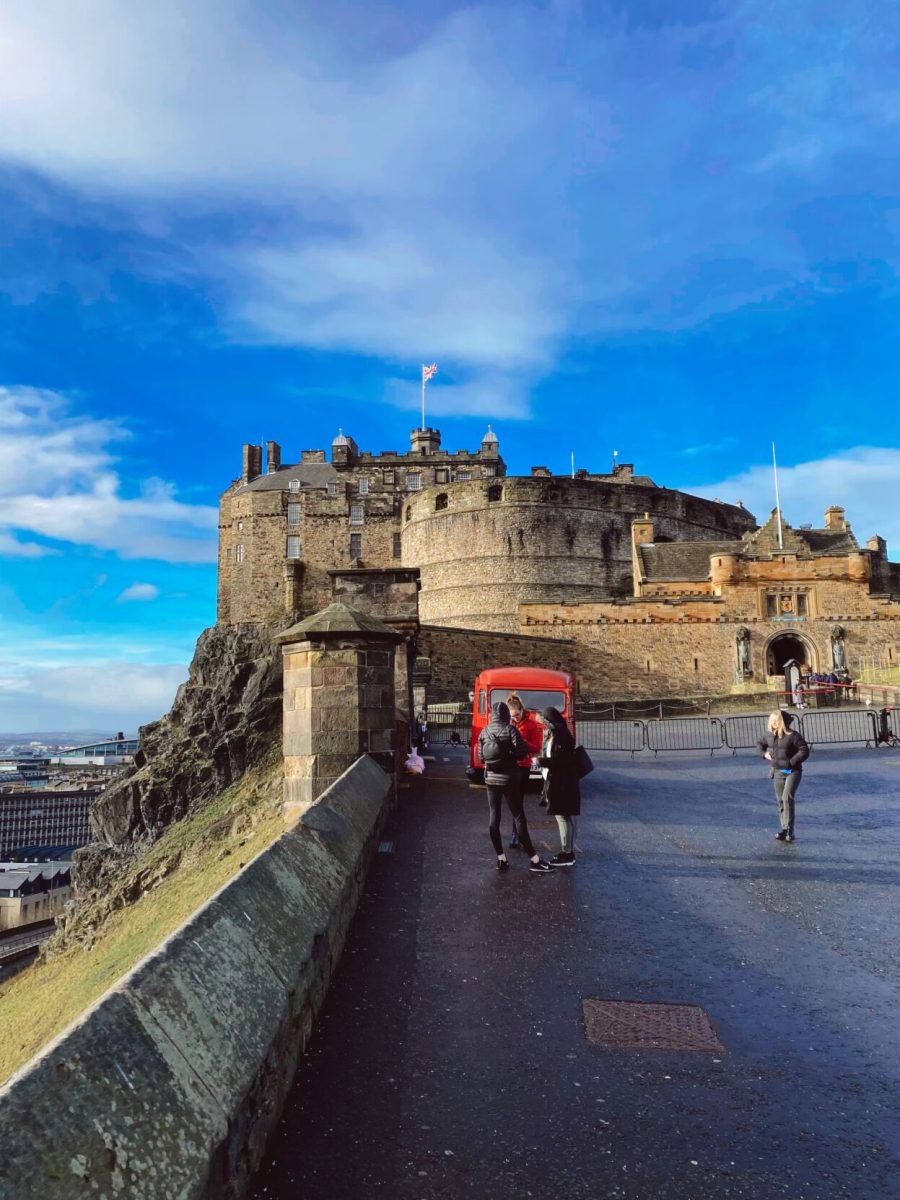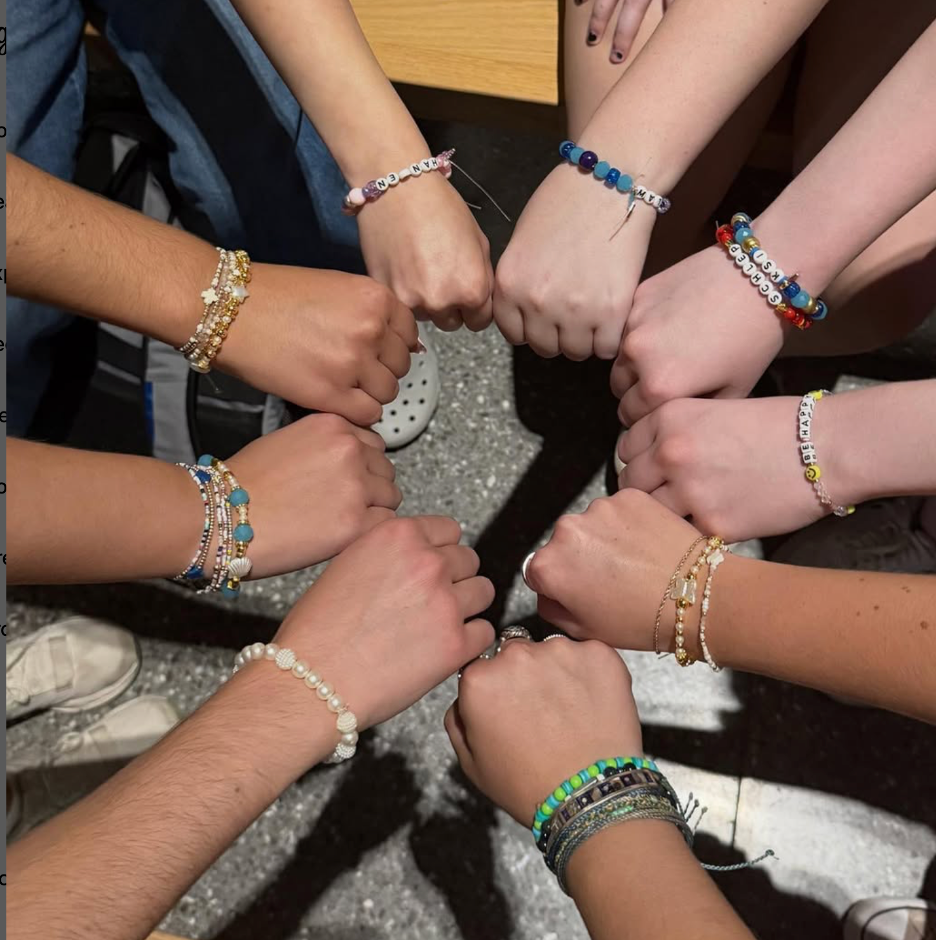The Cliffs of Moher stood in solitude, waves thundering at their base hundreds of feet below. The winds whipped through the students’ hair as they looked out on the gloomy sea, their break from virtual classes abroad peaceful. It was the beginning of a new year, and for Carley Szustak, a junior marketing major at Clemson, 2022 was off to an adventurous start as she began to book trips across Europe.
In 2020, the world went into isolation due to the COVID-19 pandemic, and study abroad opportunities were suspended. “By Fall semester of 2021, abroad programs were reopening,” Sydney Elliott, a Clemson study abroad coordinator, explained. Szustak “had always loved the idea of travelling with other students” and now had the chance.
As positive CVOID-19 results increased, the Clemson abroad office had to make a decision, Elliott explained. It was not safe to send the students who applied to study in Florence abroad as soon as planned, so the students were to take virtual classes until February 2022.
Szustak, however, had other plans. She was studying fashion marketing as a requirement for her business degree and wanted to experience the fashion culture in Europe. Szustak also desired to taste the food and test her language skills. So, she and her classmate Annika booked a flight to London in January, the month before classes started. This allowed them to attend virtual lectures on European time and then roam the bustling streets of London and countryside of Scotland and Ireland.
Szustak had to prepare for healthcare issues more than abroad students had in the past. Elliott guided Szustak with the newest healthcare rules for study abroad after the pandemic. Szustak would have to fill out extra forms, take a COVID-19 test upon arriving in Italy and carry her vaccine card while wearing the N-95 mask each day.
When Szustak arrived in Italy, she took her COVID-19 test and began to stroll the cobblestone streets lined by shops, apartments and churches.
“The regulations did not prevent me from enjoying day to day activities,” claimed Szustak. “I felt healthy, and the tests were minimal, so I had plenty of time to experience the culture of every country I wanted to visit on weekends.”
Professors encouraged Szustak and her classmates to travel each weekend. Szustak had lecture all day for two days of the week, and then hopped on a train to Germany for Springfest, the spring festival similar to Oktoberfest.
“The lifestyle in Europe has a much slower pace, so I was able to schedule myself well with my schoolwork,” said Szustak. “This helped me feel confident spending my time travelling each weekend and learn about different customs.”
Szustak and her classmates experienced a variety of cultures as a part of their education. Springfest showed them community as individuals came together to celebrate the festival. The students had a simple camp setup in the forest — “glamping” as Szustak said — and therefore could enjoy the music that boomed over attendees’ conversations.
Another weekend, Szustak found herself riding the train to Paris, where she booked a hostel for her roommates to sleep in that night. Hostels were inexpensive, shared living quarters so the students could spend more time and money visiting historic museums and charming cafés.
Szustak only stayed in Italy for two weekends throughout the three months she was living in Italy.
“We had a group of about eight students who would spend time together during the week, and split into smaller groups to travel each weekend,” Szustak explianed. “One weekend, we bought train tickets to Pisa to see the Leaning Tower, and then walked the quiet streets together while searching for our next Italian meal.”
Meanwhile in Clemson, many students were looking into studying abroad for a month in the summer of 2022. The summer programs would encompass two classes in a month-long semester, according to Elliott. These programs attracted students who wished to be abroad for a shorter time than a full semester.
“The Clemson program was an organized way for me to travel,” Brigid Murphy, a junior mathematical sciences major, said. Murphy yearned to travel during the summer and had guidance from the University in booking a place to live while complying with all healthcare and visa regulations.
By the end of May, most mask mandates throughout Europe were no longer enforced and COVID-19 cases were decreasing significantly, according to Szustak. This helped Murphy and her classmates travelling abroad in the summer focus on preparing their flights and classes.
“I was nervous the program would cancel due to the spring Florence program being delayed,” Lindsey Fry, a junior computer information systems major, explained. Fry was pleased to find her program was not canceled and travelling was not difficult upon arrival in Rome.
“Masks were required on public transportation, but many cities no longer enforced them,” Fry said. Fry and Murphy were in the same program, so they were able to figure out weekend traveling together.
The students had a busy schedule due to the program being just four weeks. Therefore, classes were every day Monday through Thursday, and lectures went for about two hours each. Students typically had two classes a day, and plenty of time each evening to stroll through Rome.
“My favorite part of the day was when we would go to dinner,” Will Sutton, a sophomore math major, said. Sutton, Fry and Murphy would complete their schoolwork and then explore the shops lining the streets of Rome before choosing a new spot for dinner. These dinners were typically much later in the evening compared to restaurants in the United States and would last over two hours for a small group.
Sutton loved to see all that Rome had to offer because it was diverse. COVID-19 regulations barely impacted his experience, so he fully embraced the lifestyle the city offered. Living like a local each day from breakfast until dinner helped him make the most of his abroad experience.
“There was a café that was on the way to classes from my apartment, so I was able to stop in four days a week,” Fry explained. “The workers were so friendly, so it made each day start positively.” Despite language barriers, Fry made friends with the locals. She lived with other students but found ways to adapt to the Italian lifestyle.
“About 25% of abroad programs have reopened,” Elliott said. “However, we have reached a record number of students registered to study abroad.” Murphy, Fry and Sutton may have had a different study abroad experience than Szustak due to the time of year and program length, but all learned far beyond their coursework. Language barriers and COVID-19 regulations posed as obstacles with shopping and commuting, but each student found their way to neighboring Italian cities or countries. Through each trip, the students had opportunities to embrace the culture and people around them.
Szustak travelled to see a multitude of museums, famous landmarks and picturesque attractions. However, her favorite memories were when she would walk the streets in her neighborhood with classmates, catching up over coffee. The river would be running quietly while locals walked to family gatherings and work meetings. Szustak was hundreds of thousands of miles from Clemson, but she made Florence feel like home.
The American University in Rome where Clemson students studied during summer programs.










